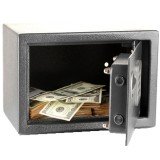How Much to Charge for Pet Deposit
Do you know what is a typical pet deposit amount to charge and what is the difference between between pet fees vs deposits? Learn the answers here.
RELATED: Should You Allow Pets in Rental Properties?
Maximum and Typical Pet Deposit Amounts
Before charging a deposit for pets in rental property, it's important to know that most states have a maximum deposit amount.
The combined amount of pet and security deposit may not exceed this maximum limit. For example: Your state laws allow a maximum deposit amount of 2 month's rent and you have asked for 1.5 month's rent as security deposit. In this case, you can impose a maximum of 0.5 month's rent as animal deposit - Click here to see the maximum deposit amount for your U.S. state.
However , some U.S. states (namely Alabama, Delaware, Kansas, Nebraska, North Carolina, North Dakota and South Dakota) have a separate limit on deposit for pets. For example: In Nebraska, you can ask for a maximum of 1 month's rent as security deposit, plus an additional 0.25 month's rent for tenants with pets.
So what's a reasonable deposit amount to charge? On the average, most landlords ask for a refundable deposit of 0.25 to 0.5 month's rent. Other landlords may choose to impose a fixed pet fee of around $200 to $500.
There are two key factors that you should consider when setting your deposit amount. The first factor is the number and type of pets. Dogs > Cats > Birds > Fishes in terms of possible property damage. The second factor is whether your rental property has fixtures and furnishings are more susceptible to pet damage (e.g. hardwood floors, carpets, curtains).
Difference Between Pet Fee vs Pet Deposit
We often get asked if deposit for pets should be refundable or not. That is an excellent question, and we're here to clear up the doubts once and for all:
Pet deposits are refundable while pet fees are non refundable. By this definition, there are a few states that prohibit non-refundable deposits, namely California, Hawaii,Montana and Oregon. Therefore you're not allowed to ask for pet fees in the above states.
In other states such as Arizona, Nevada, Washington and Wyoming, you will have to specify the purpose of all non-refundable fees (including pet fees) in the lease agreement.
If a landlord asks for pet fee plus deposit, it's important to note that pet fees will kick in first in the event of pet damage.
For example: A landlord asks for $300 of non-refundable pet fees plus $600 in deposits. If the tenant's dog causes $400 in property damages, then the landlord must use the pet fees to cover the first $300 and deduct the remaining $100 from the deposit. At the end of the lease, the landlord must return $500 of deposit to the tenant.
Instead of asking for a separate pet deposit, some landlords choose to impose higher security deposits. This is a feasible alternative since the landlord is allowed to make security deposit deductions for damages and losses caused by pets.
- Should You Allow Pets in Rental Properties?
- How Much to Charge for Pet Deposit
- Sublet Guide - Should You Give Permission to Sublet?
- Dealing with Difficult Tenants - Problems and Fixes
- How to Manage Overseas Properties by Yourself
- Hiring Someone for Foreign Property Management
- Should You Hire a Property Manager?
- Complete Guide to Property Management Fees
Visitor Comments:
-
Screening Pet Owners for Rental Properties 




If you ever had pets in rental properties, you will know that the pets themselves aren't the real problem - It's often the irresponsible tenants who allow …



